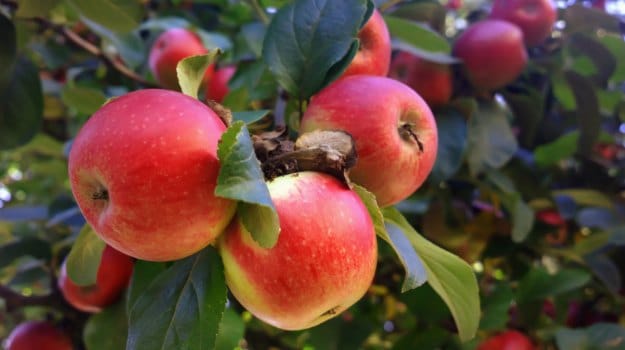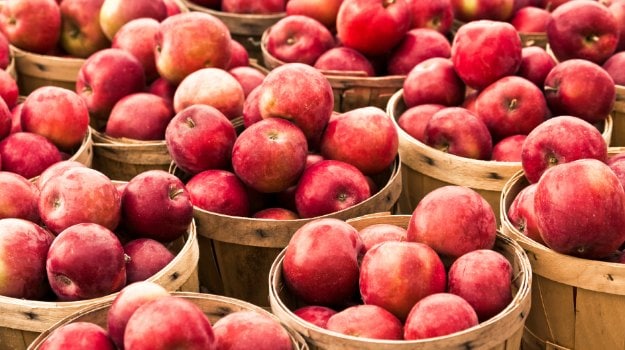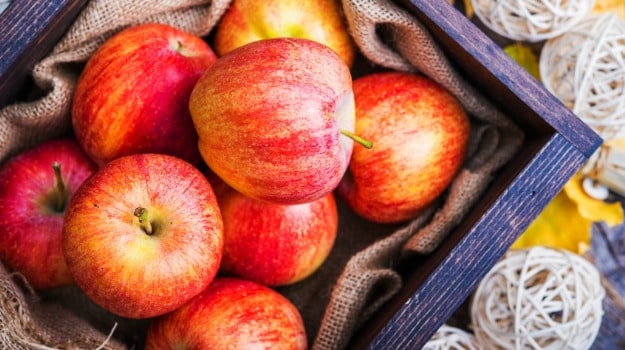1. Hold the apply in your hand and press it slightly to check for firmness. If it sinks in, it's not fresh and is most likely overripe.
2. Be on the lookout for blemishes, insect holes, any kind of crevices or brown spots. This could mean that the apple is old.
3. Look for the shine. Rub the apple slightly and you'll figure if that's the fruit's natural shine or food-grade wax which vendors sometimes apply to make their produce look good.

How to Store Apples
In many Indian households, you'll see a basket of fruit either on their dining table or on their kitchen counter. Bulked up with bananas and apples (mostly), it tells you how apples can be stored under normal temperatures, right? No, wrong! Apples are best stored in cooler temperatures so stack them in your refrigerator's fruit drawer. Another thing apples also need is moisture. So use a damp paper towel and leave it over the apples. If you've got a little more time on your hands and want your apples to stay fresh a little longer, then wrap each apple in a damp towel.

Here are a few more dos and don'ts:
1. To wash or not? The answer is always yes! According to an article in the Guardian, apples are among the top three fruits when it comes to retaining pesticides.
2. Eat the large apples first because they tend to go bad quicker.
3. Don't store apples near onions or potatoes because they tend to spoil the fruit quicker.
4. If you see a rotting apple, quickly throw it out.
5. One of the things that can completely ruin the taste of apples is browning. As the name suggests, it changes the colour of the fruit along with the not so obvious, taste, smell and freshness. Browning is an issue especially when it comes to cut fruits. Some experts also suggest lemon water but an Epicurious test proves how salt water turn out to be more effective against browning.
How to Prevent Browning - Take the cut fruit and submerge it in a bowl of water with very little kosher salt. Store it for about half an hour, drain and store in the refrigerator till ready to use.








